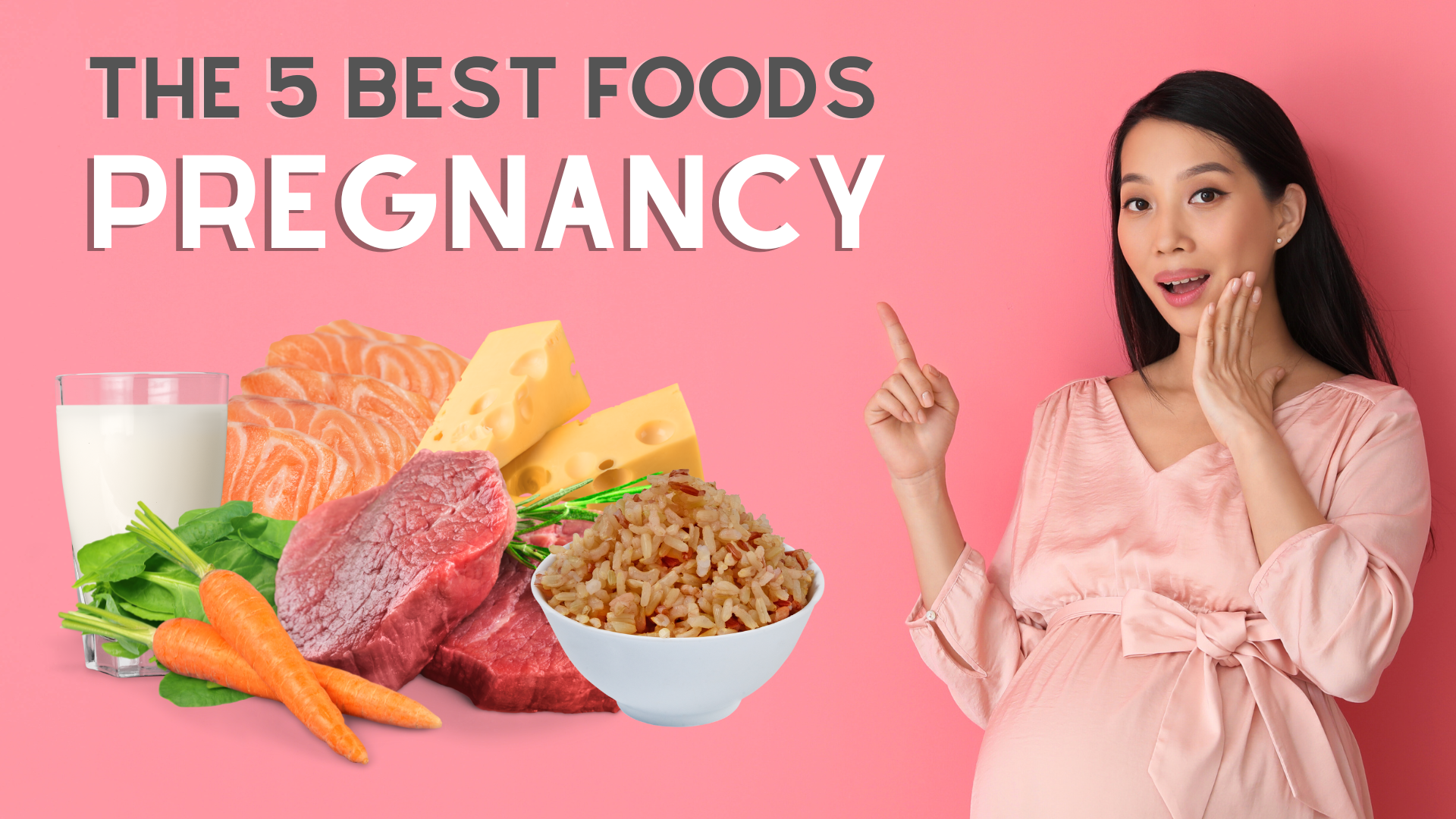Blog
Nourishing Your Body: The 5 Best Foods During Pregnancy

 During pregnancy, maintaining a well-balanced diet is crucial for both the mother’s health and the development of the growing baby. Consuming nutrient-rich foods not only supports the overall well-being of the expectant mother but also ensures optimal fetal growth and development. In this article, we’ll explore five of the best foods to incorporate into your diet during pregnancy, providing essential nutrients for a healthy pregnancy journey.
During pregnancy, maintaining a well-balanced diet is crucial for both the mother’s health and the development of the growing baby. Consuming nutrient-rich foods not only supports the overall well-being of the expectant mother but also ensures optimal fetal growth and development. In this article, we’ll explore five of the best foods to incorporate into your diet during pregnancy, providing essential nutrients for a healthy pregnancy journey.
- Leafy Greens: Leafy greens such as spinach, kale, and Swiss chard are nutritional powerhouses, packed with essential vitamins and minerals including folate, iron, calcium, and fiber.
- Folate is particularly important during pregnancy as it helps prevent neural tube defects and supports the baby’s brain and spinal cord development.
- Iron aids in the production of red blood cells and helps prevent anemia, a common concern during pregnancy.
- Calcium is essential for the development of strong bones and teeth in both the mother and the baby.
- Lean Protein Sources: Including lean protein sources such as poultry, fish, lean beef, tofu, and legumes in your diet is vital for the proper growth and development of the baby.
- Protein is essential for building and repairing tissues and is especially important during the second and third trimesters when fetal growth is at its peak.
- Omega-3 fatty acids found in fatty fish like salmon, sardines, and trout are beneficial for the baby’s brain and eye development.
- Whole Grains: Whole grains such as oats, quinoa, brown rice, and whole wheat bread provide a steady source of energy and essential nutrients including fiber, B vitamins, and minerals.
- Fiber helps prevent constipation, a common discomfort during pregnancy, and promotes digestive health.
- B vitamins, including thiamine, riboflavin, and niacin, are important for energy metabolism and nerve function.
- Dairy Products: Dairy products such as milk, yogurt, and cheese are excellent sources of calcium, protein, and vitamin D, all of which are essential for bone health and development.
- Calcium plays a crucial role in building strong bones and teeth for both the mother and the baby.
- Vitamin D helps the body absorb calcium and is important for immune function and cell growth.
- Colorful Fruits and Vegetables: Including a variety of colorful fruits and vegetables in your diet ensures a wide range of vitamins, minerals, and antioxidants essential for a healthy pregnancy.
- Orange and yellow fruits and vegetables such as carrots, sweet potatoes, and mangoes are rich in vitamin A, which is important for vision and immune function.
- Berries such as strawberries, blueberries, and raspberries are packed with antioxidants, fiber, and vitamin C, which supports the immune system and helps the body absorb iron.
Incorporating nutrient-rich foods into your diet during pregnancy is essential for supporting your own health and the growth and development of your baby. By including leafy greens, lean protein sources, whole grains, dairy products, and colorful fruits and vegetables in your meals, you can ensure that you’re providing your body and your baby with the essential nutrients they need for a healthy pregnancy journey. Remember to consult with your healthcare provider or a registered dietitian for personalized nutrition advice tailored to your individual needs during pregnancy.
